Too often, a lot of time and money is invested in purchasing and deploying new technologies across the business. However, to succeed, organisations need to devote proper time and resource to a strategic, professional approach which is tailored for your business and focused on specific objectives.
Recognizing this, the below case study portrays a dedicated training program for all those employees involved, to bring them up to speed, ensure they were comfortable, confident and able to get maximum benefit from their new software, and ultimately take them from ‘zero to hero’ by covering everything from the basic essentials to more complex predictive analytics.
Background
In 2023 we were commissioned by a client to develop a large scale training program that would allow staff within the organisation to develop Alteryx skills encompassing a series of subjects beginning with Core Concepts through to Intelligence Suite.
As part of this programme, it was requested that specific sessions were created using our 2 hour training offerings and combining those to create custom 4 hour sessions. Which we were able to do by creating five four hour sessions.
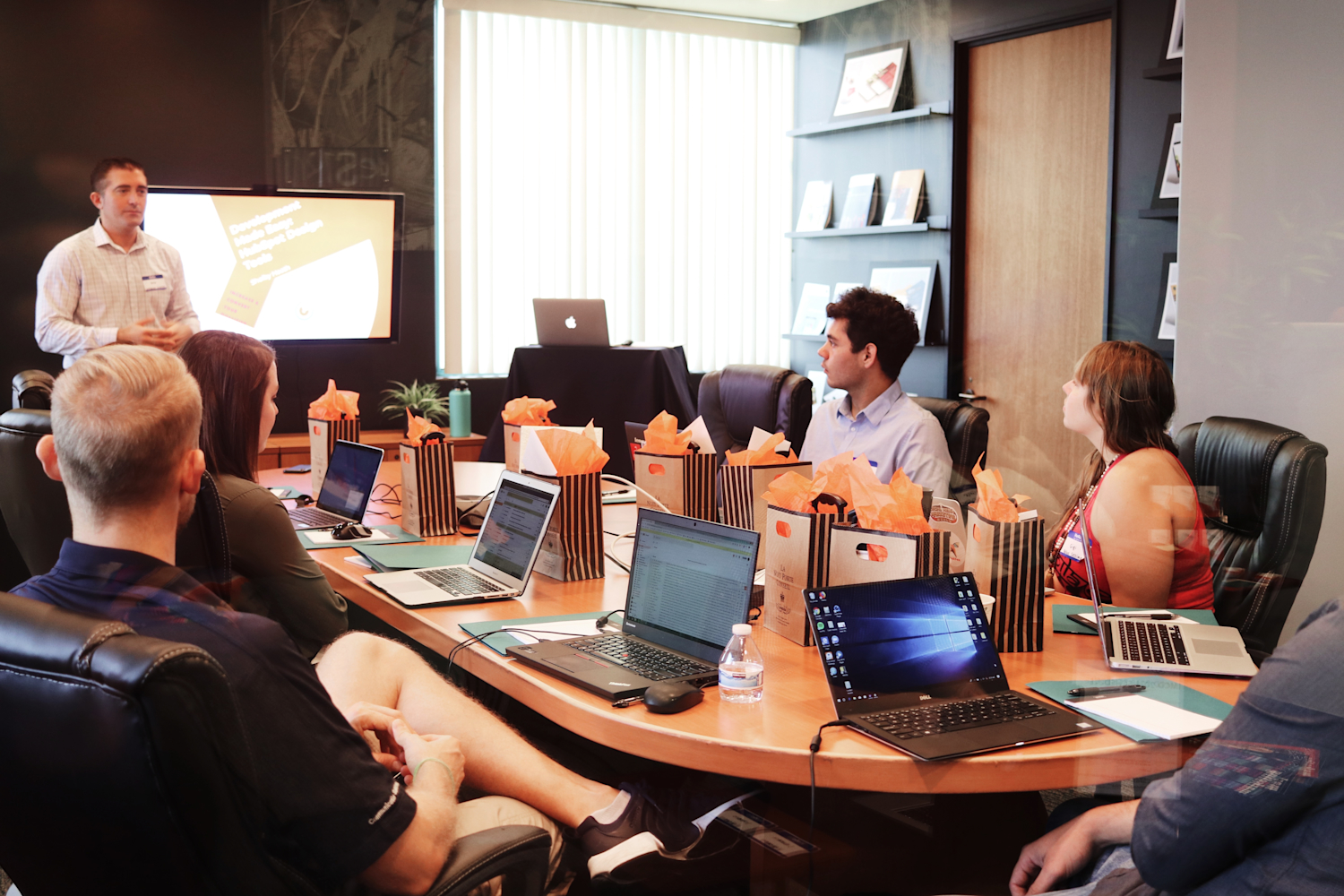
The program consisted of 74 sessions, a total of 296 hours and was delivered by 7 Keyrus Consultants, with multiple sessions running concurrently and laid out in 2 timeslots 07:00 GMT and 13:00 GMT to allow access to their employees across the globe.
As part of this programme, I developed a learner survey, that was circulated to learners at the end of each session, which would allow us to look at the satisfaction of learners both with the trainer and the training content. As this programme took place over a period of six weeks, I was able to pull together a weekly report that could be used to improve the sessions as we went.

Respondents overwhelmingly responded positively to the survey; however, the number of responses was low compared to total respondents across the program.
We received a total of 74 feedback forms from respondents across all sessions, with 51 located in Europe, the Middle East and Africa, 12 in North America, 7 in Asia Pacific and 4 in South America.
Overall Feedback
We received a total of 74 feedback forms from respondents across all sessions, with 51 located in Europe, the Middles East and Africa, 12 in North America, 7 in Asia Pacific and 4 in South America.
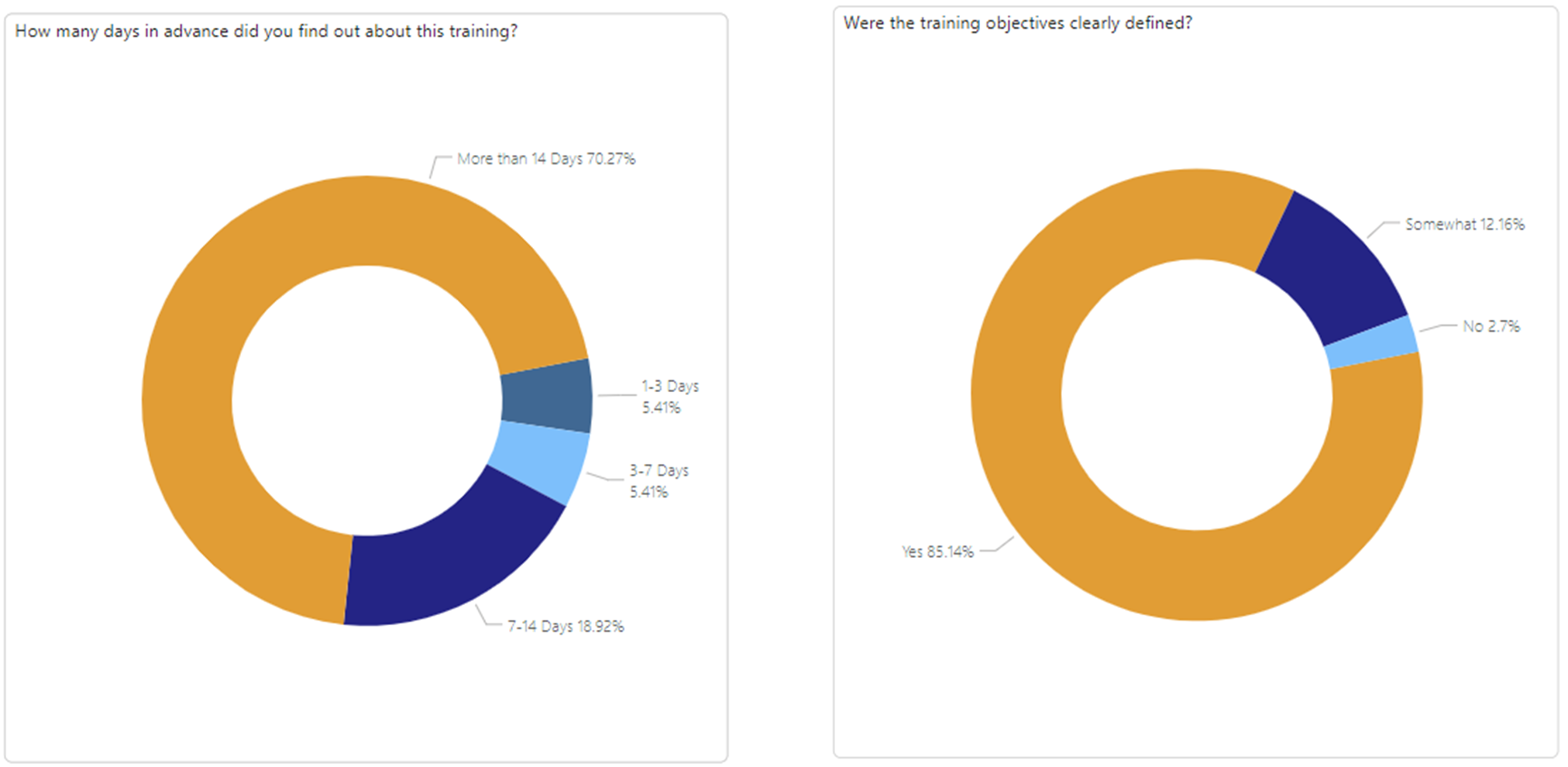
The majority of respondents stated they had over 14 days’ notice. Also, the majority of respondents stated that training objectives were clearly defined.
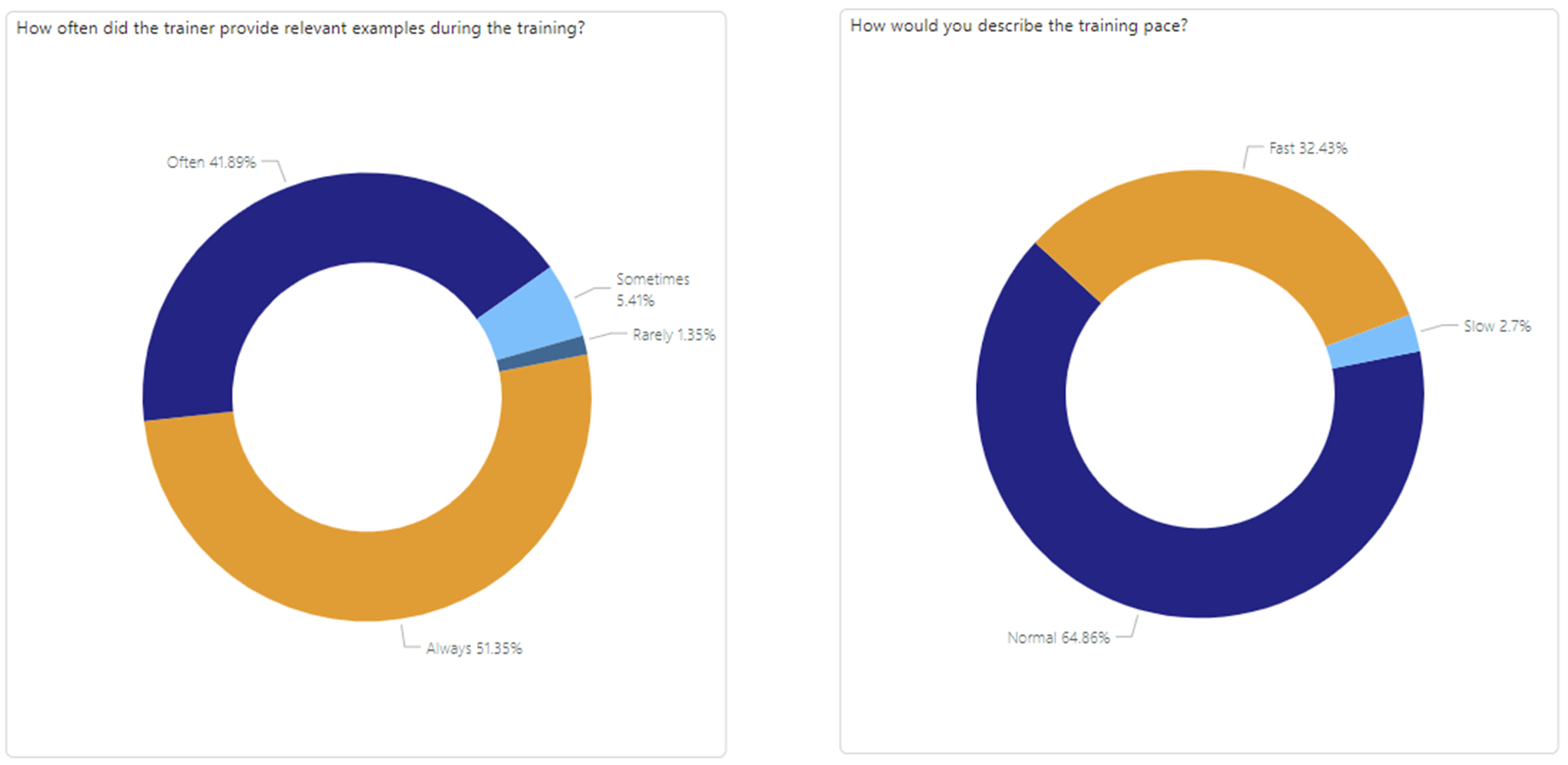
As the chart shows, 51.35% of respondents stated that the trainer provided relevant examples always, with 41.89% stating often, 5.41% stating sometimes, and the remaining 1.35% stating rarely.
The majority of respondents stated that the training pace was normal (64.86%), with 32.43% stating that the pace was fast, only 2.7% stated that the pace was slow.
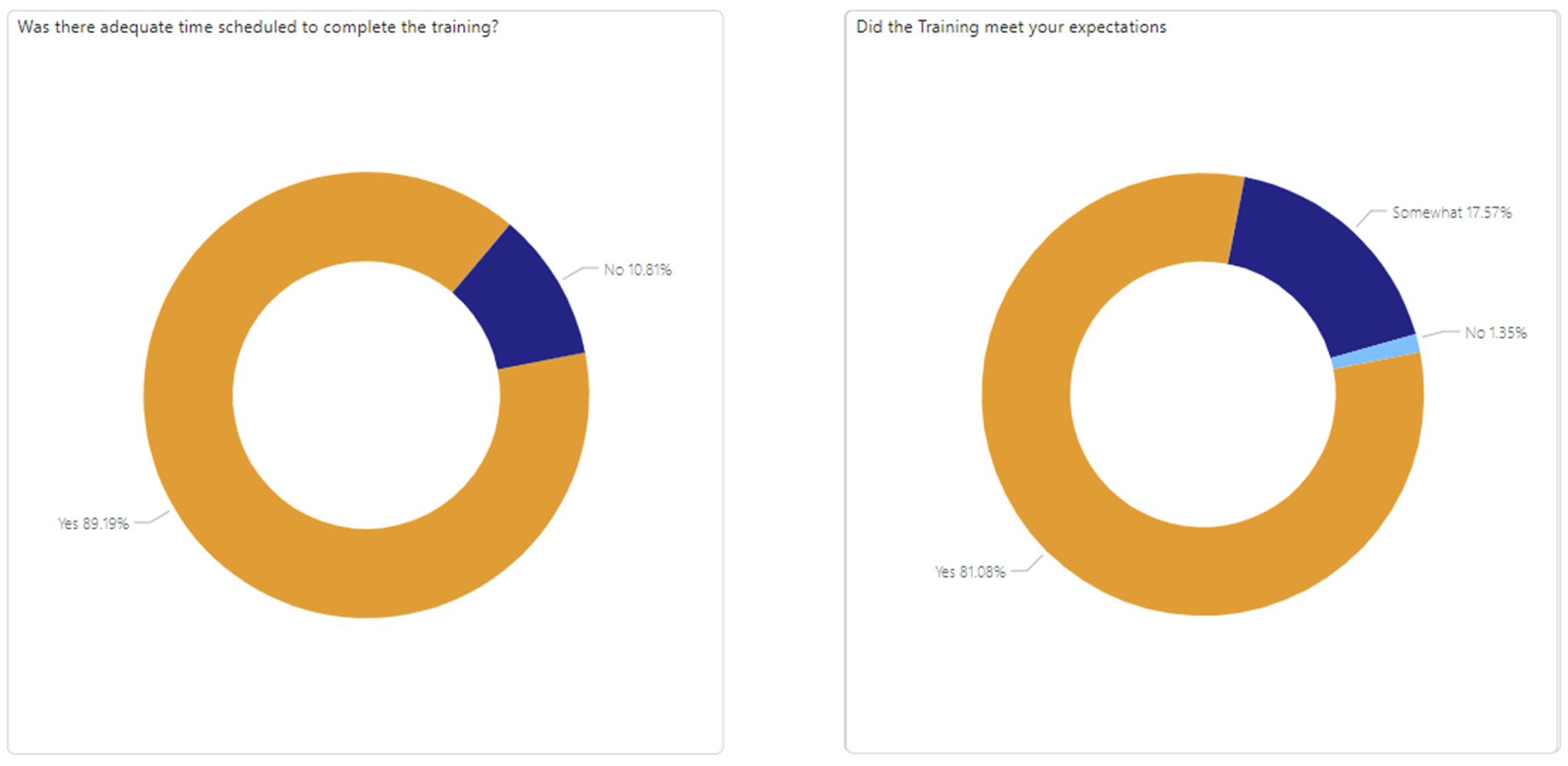
The majority of respondents stated that there was adequate time scheduled to complete the training, only 10.81% stated that there was not adequate time.
The majority of respondents stated that the training met their expectations, 17.57% stated somewhat and 1.35% stated No (1 respondent).
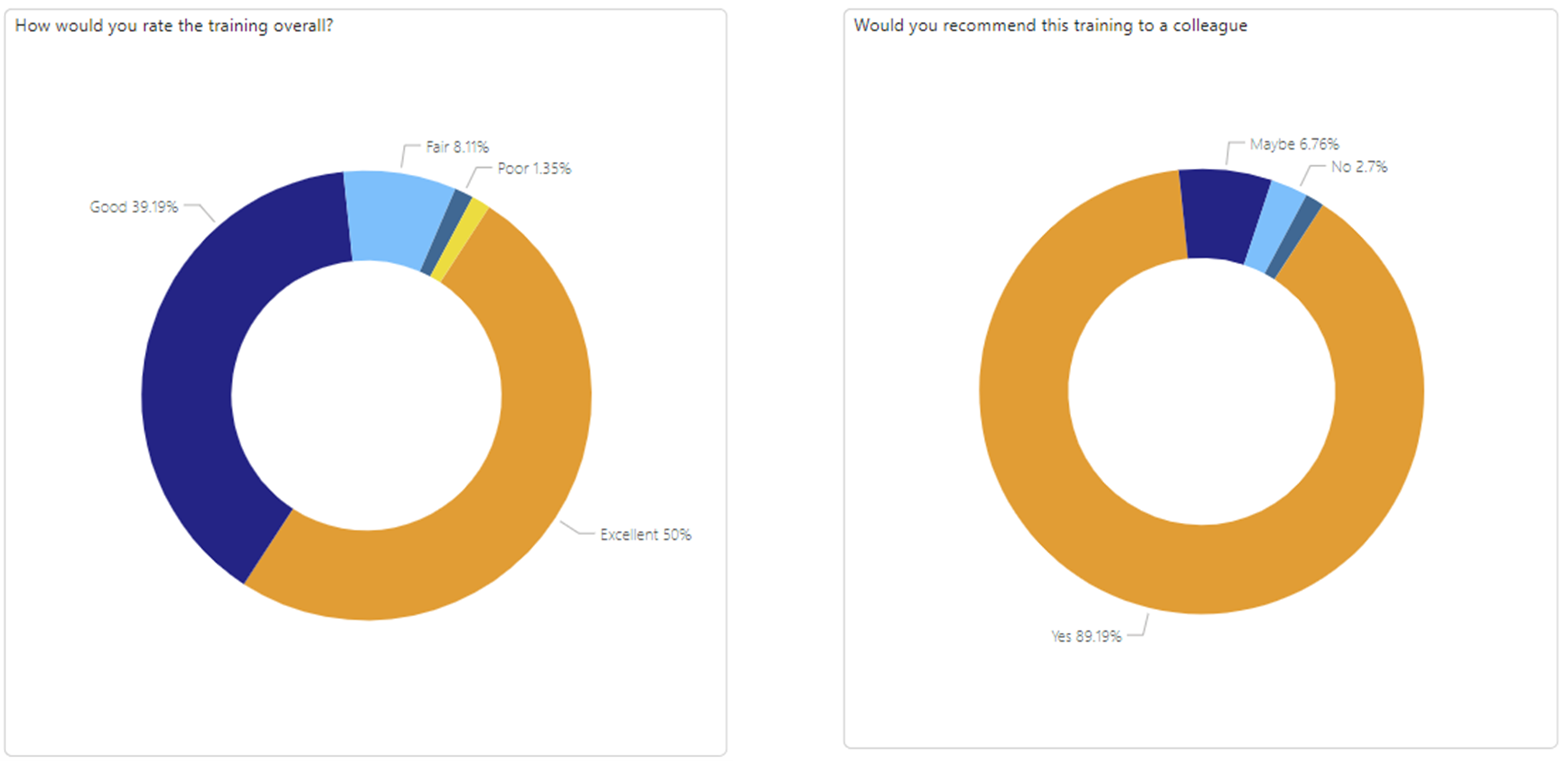
50% of respondents stated that the overall rating of the training was Excellent, with a further 39.19% of respondents rating it as Good, 8.11% rated it Fair, with 1.35% stating Poor and 1.35% stating Unacceptable (equating to 1 respondent for each).
89.19% of respondents would recommend this training to a colleague, 6.76% stated Maybe and 2.7% stated No and 1.35% (1 respondent) did not complete.
Conclusion
The Alteryx Training Programme, spanning 74 sessions over six weeks, garnered positive feedback from participants across the globe. The majority expressed satisfaction with the clarity of objectives, relevance of examples, and overall pace of the sessions. Most respondents rated the training as Excellent or Good, with an overwhelming majority indicating they would recommend it to colleagues.
However, efforts to improve survey response rates and address any areas rated lower are essential for refining the program's effectiveness and ensuring continued success in meeting participants' needs and expectations.
